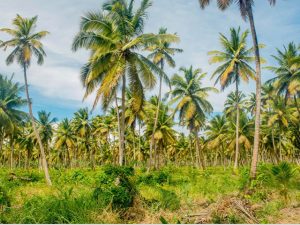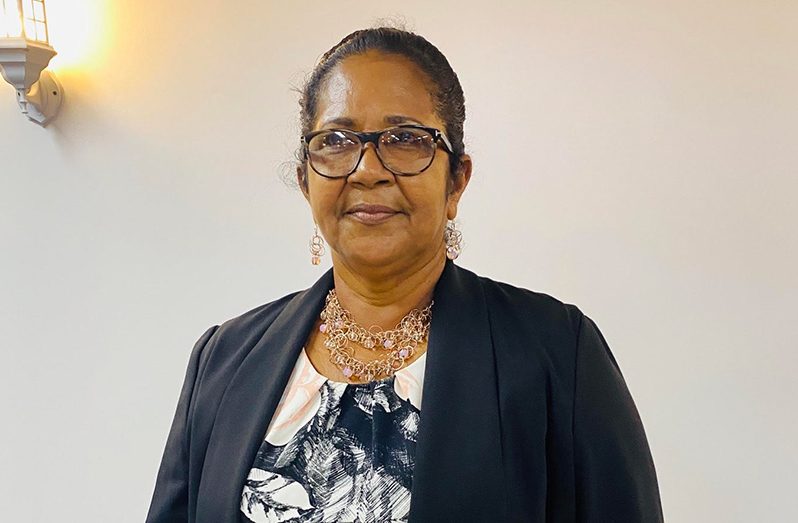-says it has ‘bright future’
By: Indrawattie Natram
REGION Two (Pomeroon-Supenaam) Chairperson Vilma De Silva is encouraging farmers in the Pomeroon- Supenaam region to diversify and invest in the coconut Industry which she said
will lead to big returns. De Silva made these comments during an interview with members of the media during a recent visit to several flood-affected areas. She said although Region Two is predominantly a rice-growing area, farmers need to think “outside the box” and invest in coconuts. She explained that coconut trees withstand the both wet and dry-weather conditions. “Now that we have the flooding in the region, we are seeing cash crops perishing as well as rice; the coconut industry is not affected. These trees withstand any weather, that’s why farmers need to invest wisely,” De Silva said.

De Silva who has ties to the industry said that there are huge demands for water coconuts internationally and farmers need to tap into those markets. She further explained that the industry offers numerous opportunities in terms of adding value. She is the proprietor of Henvil coconut water and said that she is frequently exporting bottled coconuts to Trinidad. She exported two containers of coconuts to the Caribbean last year. The regional chairperson expressed optimism that with improved infrastructure in the Pomeroon River, the industry will blossom. She disclosed that she plans to have discussions with the relevant authorities regarding the opening up of additional lands in the Pomeroon River for coconut cultivation.
“Farmers in that area are requesting [unblocked] drainage. Once this can be done, then Pomeroon can become the breadbasket of the Caribbean,” De Silva added. When asked what is stopping farmers from investing, De Silva opined that most of them have to invest privately to conduct drainage works which are sometimes very expensive. Another hindrance is that most of the lands are leased and farmers do not have “Land Titles,” which makes it difficult to tap into the banking system for loans. “While the lands are there, farmers make the money [but] they have to reuse [it] to reinvest because the banks are not lending money for further investment, since there is no form of assurance,” De Silva said.
However, De Silva is confident that under the PPP/C government prudent investments will be made in the drainage and irrigation (D&I) systems in the Pomeroon River. This in turn can stimulate development in that area. She said once this is done, families will be able to cultivate and enjoy a better life. According to De Silva, the Pomeroon areas were neglected by the previous administration. For years farmers were suffering from poor drainage and irrigation which had led to them either migrating from the area or abandoning their farmlands.



.jpg)









